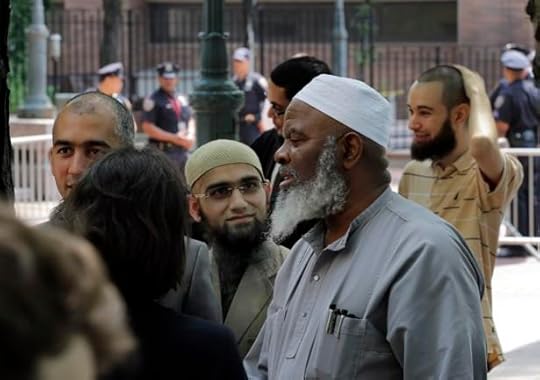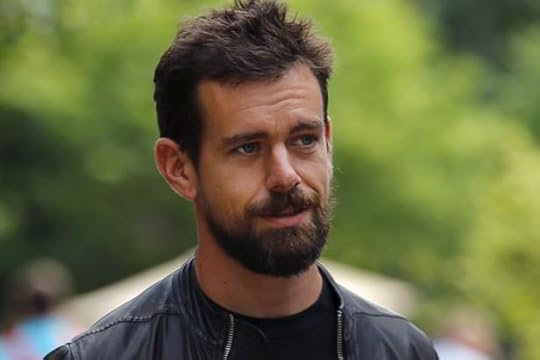Atlantic Monthly Contributors's Blog, page 259
January 7, 2016
NYPD Settles Pair of Lawsuits Over Muslim Surveillance

A settlement announced Thursday in two lawsuits brought over the surveillance of Muslims by the New York Police Department after the attacks of September 11, 2001, will include, among other changes, a civilian to monitor police surveillance of religious groups.
The city does not admit to any wrongdoing under the agreement in the two cases—Raza v. City of New York and Handschu v. Special Services Division. Both agreements are subject to court approval.
The Raza suit charged the NYPD of violating the Constitution by singling out New Yorkers based on their religion. The case sought systemic reforms to prevent law enforcement abuses. In Handschu, lawyers argued the investigations of Muslims violated the long-standing consent decree in that case. The New York Times has the background on Handschu:
The intelligence unit began in the 1900s as the Italian Squad, with a focus on suspected anarchists. Over the decades, it shifted focus to Communists, Vietnam War protesters, student groups and civil rights organizations.
A 1971 class-action lawsuit forced the end of the city’s so-called Red Squads and established the intelligence-gathering rules, known as the Handschu Guidelines, after one of the plaintiffs. The lawsuit has remained active for decades, serving as a check against police overreaching.
“We are committed to strengthening the relationship between our administration and communities of faith so that residents of every background feel respected and protected,” Mayor Bill de Blasio said in a statement. “New York City’s Muslim residents are strong partners in the fight against terrorism, and this settlement represents another important step toward building our relationship with the Muslim community.”
William Bratton, the city’s police commissioner, called the agreement a step toward building and maintaining trust with the city’s Muslim community.
Bratton, in the statement, said: “Incorporating existing NYPD practices into the Handschu Guidelines makes it easier to maintain best practices in intelligence gathering and investigations.”
The modifications bring the guidelines closer in line with the practices of the FBI.
The American Civil Liberties Union, which brought one of the cases on behalf of Imam Hamid Hassan Raza, in a statement said: “This agreement with the country’s largest police force sends a forceful message that bias-based policing is unlawful, harmful, and unnecessary.”
Among other things, the agreement prohibits investigations in which race, religion, or ethnicity is a substantial or motivating factor; requires factual information about possible unlawful activity before a preliminary investigation into political or religious activity; and ends open-ended investigations.
It also introduces a civilian to monitor police surveillance of religious groups. The ACLU adds:
Installing a civilian representative within the NYPD with the power and obligation to ensure all safeguards are followed and to serve as a check on investigations directed at political and religious activities. The civilian representative must record and report any violations to the police commissioner, who must investigate violations and report back to the civilian representative. If violations are systematic, the civilian representative must report them directly to the judge in the Handschu case.
You can read the agreement here.









Another Day of Market Turmoil

Updated on December 7 at 4:39 p.m. ET
Chinese stocks plunged 7 percent Thursday, closing markets 29 minutes after trading began, and raising more fears about the health of what by some measures is the world’s largest economy. Consequently, markets across Asia and Europe slid, and U.S. stocks, which have already seen their worst three-day opening since the recession in 2008, extended that losing streak.
Thursday’s selloff in China was attributed to a decision by the People’s Bank of China, the country’s central bank, to set the midpoint rate on yuan at 6.5646 per dollar, or 0.5 weaker—that’s the lowest level since March 2011, Reuters reported.
“The Chinese yuan is smack bang at the heart of concerns,” Chris Weston, chief market strategist in Melbourne at IG Ltd, told Bloomberg. “For risk assets to stabilize and sentiment to turn around, we are going to need a stable or even positive move in the Chinese currency. It’s clear that the market is becoming increasingly concerned by the global inflation outlook.”
The Chinese central bank’s move increased already-heightened fears over the health of the Chinese economy. Although the country is expected to grow 6.5 percent this year—enviable by most other standards—much economic data coming out of the China is pessimistic. The decision in currency markets could indicate, analysts say, that the economy is doing worse than expected. A cheaper yuan, in theory, would boost Chinese exporters, who have been struggling.
“That’s the fear of the market,” Sim Moh Siong, FX strategist for Bank of Singapore, told Reuters, adding it was a zero-sum game as other currencies weakened in response. The result: greater volatility.
“China has a major adjustment problem,” George Soros, the billionaire investor, said Thursday at an economic forum in Colombo, Sri Lanka, in remarks reported by Bloomberg. “I would say it amounts to a crisis. When I look at the financial markets there is a serious challenge which reminds me of the crisis we had in 2008.”
But other investors said the Chinese market declines appeared worse than they were.
“Investors should bear in mind that the China equity falls are more correlated with short-term psychological factors rather than the underlying China economic conditions,” Ben Luk, a global market strategist at J.P. Morgan Asset Management, wrote in a note, cited by The Wall Street Journal.
Indeed, the current market pessimism, which has seen $2.5 trillion wiped off the value of global equities in the first six days of this year, also comes amid worries about oil, which are near their lowest prices in more than a decade amid a supply glut and worries about the health of the global economy. Consequently, safe havens, such as gold, have gained sharply.
In the U.S., where markets have been trounced this week, investors pored over the latest minutes from the Federal Reserve’s December policy meeting at which the benchmark interest rates were raised for the first time in nearly a decade. The minutes of the meeting revealed concerns among officials that inflation would remain above the goal of 2 percent.
“For people who’ve come back to work from the holidays, we’ve just had a reality check,” Alastair George, chief strategist at Edison Investment Research, told the Journal. “It’s not exactly an environment in which people want to take on risk.”









The Problem With Telling Women to Stay an 'Arm's Length' From Men

Carnival season in Cologne is just weeks away. For six straight days, the western German city will be locked in a giant party that one Berlin-based reporter said makes Oktoberfest look civilized. This year, the mayor of Cologne said she’s concerned for the safety of women during Carnival, following reports that hundreds of young men groped, robbed, or assaulted dozens of women in the city’s square on New Year’s Eve.
So, when a reporter recently asked the mayor how women could protect themselves in the future, Henriette Reker proposed a kind of code of conduct for women “so that such things do not happen to them.”
“There’s always the possibility of keeping a certain distance of more than an arm’s length—that is to say to make sure yourself you don’t look to be too close to people who are not known to you, and to whom you don’t have a trusting relationship,” she said Tuesday.
Reker’s suggestion that women could avoid being sexually harassed (or raped, as two women reported they were on New Year’s Eve) by keeping potential assailants at “arm’s length” drew immediate backlash. On Twitter, the outrage—much of it alternating between shock and sarcasm—amassed under #einarmlaenge, or “an arm’s length” in German.
“What’s most annoying is that no one knew about #anarmslength before. Think how much women could have prevented!” one German woman tweeted. “If you’ve got short arms, you can just carry two umbrellas. That way you’re sure to keep the right distance,” said another.
On the surface, Reker’s comments were probably well-meaning. She’s not wrong to try to advise women on sexual-assault prevention, which needs all the awareness it can get. Plus, Reker is a victim of assault herself. A day before she was elected mayor last October—the first female mayor in Cologne’s history—a man opposed to Reker’s refugee-friendly policies stabbed her in the neck with a knife. And after all, it’s her job as mayor to publicly express concern about the safety and welfare of her roughly 1 million constituents. Stay alert, be vigilant, that kind of thing.
But never mind that it’s unrealistic to expect enough room at a crowded street festival to keep anyone at arm’s length. In another way, #einarmlaenge isn’t about staying alert, being vigilant, that kind of thing. It’s a suggestion that women change their behavior in order to avoid being harassed by men. It seems to place the responsibility for the prevention of sexual violence not on those who perpetrate it, but on those who endure it.
“An arm’s length” is like much of the advice women have been given—by government officials and college presidents and other women, in countries around the world—to avoid attracting “negative attention,” which could lead to sexual violence. Drink less alcohol at parties. Wear more clothes. Don’t ride public transportation alone at night. Marry a man. In Israel in the 1970s, after a series of violent rapes, one politician suggested women be put under curfew until the perpetrators were caught. “Men are committing the rapes,” responded Golda Meir, then the prime minister. “Let them be put under curfew.”
As Amanda Hess wrote in Slate in 2013, “Rape is a societal problem, not a self-help issue. Parents can tell their own daughters not to get drunk, but even if those women follow instructions, it won’t keep other people’s daughters safe.” German government officials can tell women to stay an arm’s length away from strangers, but that won’t keep women in India or Russia or the United States safe.
Reker hasn’t yet, to my knowledge, followed up her advice to women with a suggestion that men prevent sexual assault by not committing it. But here are a few suggestions worth considering. In 2011, a list of 10 “rape-prevention tips” mocking the tenor of the advice given to women made the rounds on the Internet. These were aimed at men. “If you are in an elevator and a woman gets in, don’t rape her,” one tip explained. “Use the buddy system! If it is inconvenient for you to stop yourself from raping women, ask a trusted friend to accompany you at all times,” advised another.
German officials have vowed to locate and prosecute the men behind the New Year’s Eve crime spree. “Anyone who believes they can breach law and order must be punished—no matter where they come from,” said Heiko Maas, the German justice minister, on Thursday. He was alluding to the fact that witnesses described the perpetrators as being of Arab or North African descent, and the connection that some have made between the assaults and the influx of asylum-seekers that Germany welcomed last year. But Reker isn’t telling women to stay away from strangers because some of those strangers might be migrants or refugees. She’s telling them to stay away because they’re men.









Don't Fear the #10kTwitter

Is Twitter abandoning its trademark 140-character limit?
That was the word earlier this week when Re/Code, the tech-business publication of record, reported that the company was “building a new feature that will allow users to tweet things longer than the traditional 140-character limit.”
Twitter users quickly and understandably freaked out. They imagined their feed choked with 1,500-word arguments and long, self-involved narration, which would be much worse than the 25-word arguments and brief, self-involved narration that fill it today. Floating on their fears and jokes, the hashtag #10kTwitter has been trending for three days.
And indeed, a 10,000-character-long tweet would signal ill … if that’s what the company was doing. But as its CEO later clarified, Twitter instead hopes to build a kind of pull-quote feature that can be embedded into tweets.
“We’ve spent a lot of time observing what people are doing on Twitter, and we see them taking screenshots of text and tweeting it,” said Jack Dorsey, who took over six months ago. “Instead, what if that text … were actually text?”
He imagined some of the consequences: “Text that could be searched. Text that could be highlighted. That’s more utility and power.”
It’s not hard to imagine what this feature would look like in practice. At the bottom of each tweet with the new, embedded-text feature, there will probably be some large, handsome preview text and a link to “read more.” Follow that link, and you’ll find the page with those additional 10,000 characters. Maybe it’ll even look a little like Twitter’s Moments pages.
For about a year now, users have been “embedding pull-quotes” in tweets by taking a screenshot of relevant text in a story and tweeting that image. Some developers even made an app last March to make those image-pull-quotes look fancy. In absorbing this user innovation into the official Twitter product, Twitter is following its own good precedent. In fact, I’d say the company is at its best when it turns user-invented hacks into actual features. Retweets, embedded images, and even @-replies were all first invented by Twitter users before they were embraced by the company as a whole. And all those features are now not only beloved parts of the Twitter service but also copied across the web.
But why else would the company do such a thing? Tech journalists like myself scuttled in to fill the explanatory void. Slate’s Will Oremus couched the new feature in terms of Facebook’s Instant Articles, which hosts news stories from major outlets directly on Facebook’s own servers. “Instead of funneling traffic to blogs, news sites, and other sites around the Web, the ‘read more’ button will keep you playing in Twitter’s own garden,” he said. “To satisfy its investors, Twitter needs all the attention it can get.”
John Herrman of The Awl fit the new feature into a storyline he’s been following for more than a year: the migration of users from individual websites (like www.theatlantic.com) to apps and platforms (like @TheAtlantic on Twitter). Of journalists and other media people who tweet professionally, he wrote, “it will make the work they do better for Twitter, better for Twitter users, but worse for them (or at least their employers).”
Not everyone was so gloomy. My old colleague Alexis Madrigal said that the 10,000-character text feature “could actually be great,” and also that it probably sprung above all from software engineers’ hatred of data loss.
That might be true. But much better news than that for many users is that these new embedded pull-quotes are much more accessible than the current style. Anyone using a screen reader—in other words, many people with low vision—will now be able to read text in one of the new-fangled pull-quotes. They couldn’t do that when that information was locked in an image file. (Buzzfeed covered this specific issue—that Twitter screenshots are invisible to blind users—back in June.)
Of course, these new Twitter text add-ons won’t work just as pull-quotes. They’ll eventually become a medium in their own right. Users—especially users who produce Twitter professionally—are right to ask what kind of ad units will run on the pages, and whether the people writing the 10,000-character missives will get any of the cut. Facebook’s Instant Articles lets news organizations run their own ads on the quick-loading pages; will Twitter do the same?
But I think the recent Facebook feature to focus on here isn’t Instant Articles but its recently updated and improved Notes product. Notes is the blogging software inside Facebook; it lets users post a thought or essay that they want to lift beyond the realm of status updates. In August, it began buffing the feature, giving Notes all the pretty serifs and arty gradients of a contemporary web service. I theorized then that they were investing in this feature to harass Medium and LinkedIn: Facebook wanted in on the “personal press release” market. They wanted professionals switching jobs to post about their beautiful journey on the Big Blue, not somewhere else. As Twitter adds its own built-in notes feature, I think that’s the market they’ll target first.









What's the Point of the New Ted Cruz Birtherism?

Brand new year, brand new resurgence of one of the more frustrating and futile political firedrills out there: Ted Cruz birtherism.
The ringleader is—shockingly!—Donald Trump, who reopened the old controversy about whether Cruz is eligible to be president, given that he was born in Canada, in an interview with The Washington Post:
Republicans are going to have to ask themselves the question: “Do we want a candidate who could be tied up in court for two years?” That’d be a big problem. It’d be a very precarious one for Republicans because he’d be running and the courts may take a long time to make a decision. You don’t want to be running and have that kind of thing over your head .… I’d hate to see something like that get in his way. But a lot of people are talking about it and I know that even some states are looking at it very strongly, the fact that he was born in Canada and he has had a double passport.
To get a few things out of the way: First, it is not true that Cruz “has had a double passport.” There’s no such thing—though Cruz was a dual citizen, apparently unwittingly, for years before renouncing his Canadian citizenship in 2014—and Cruz says he never held a Canadian passport.
Second, and more importantly, the premise is false, as I explained in detail in 2013: Because Cruz’s mother was an American citizen, Cruz is a natural-born United States citizen from birth, regardless of what other citizenships he may have held. It’s not worth relitigating that question, but it is worth discussing why Trump might be bringing it up, why others are joining in, and what it means for the election.
Related Story
Yes, Ted Cruz Can Be Born in Canada and Still Become President of the U.S.
Trump isn’t the only one in on the carnival. With the issue on the table again, other politicians are joining. Cruz and Trump’s presidential rival Rand Paul quipped, “You know, I think without question he is qualified and would make the cut to be prime minister of Canada, absolutely without question, he is qualified and he meets the qualifications.” John McCain—the senator and former presidential candidate who was born in Panama, where his father was serving at an American base in the Canal Zone—was asked about it too, and replied, “I think there is a question. I'm not a constitutional scholar on that, but I think it's worth looking into. I don't think it's illegitimate to look into it.” (He added: “I know it came up in my race because I was born in Panama, but I was born in the Canal Zone, which is a territory.”) Representative Nancy Pelosi, the Democratic minority leader, responded to a question by saying she could see a difference between McCain and the Canal Zone on one hand and Cruz and Canada on the other.
All three of these politicians are probably trolling. McCain has shown little patience for birtherism in the past—he famously rebuked a questioner who called Barack Obama an “Arab” during a 2008 campaign stop—but he has even less patience for Ted Cruz. Paul may profit from taking a shot at a fellow candidate, but he also loves to troll, as McKay Coppins documents in The Wilderness. And Pelosi, too, is an accomplished troll.
Trump reemerged as a political force on the basis of his own championing of birtherism in 2011; he allegedly bankrolled investigators who he sent to Hawaii to look into Obama’s origins, though he never released the results. Even since Obama released his long-form birth certificate, as Trump demanded, Trump has quietly continued to espouse birtherism. Given all that, it would be hard for him to not at least go through some motions on questioning Cruz’s eligibility—even if Obama had been born abroad, his mother was an American citizen, which would give him the same claim to citizenship that Cruz does. (Not that Trump has allowed a foolish consistency to be the hobgoblin of his “really smart” mind.)
Moreover, the birther attack gives Trump a good method to attack Cruz, who has recently emerged as his major rival in polling both nationally and in Iowa. But what kind of weapon is birtherism? It is, at its root, an effective way of telling voters that Cruz isn’t like them. That he’s not one of us. That he’s different. In other words, it capitalizes on all of the anti-immigrant, anti-foreigner sentiments that have driven his campaign all along.
Given the overwhelming evidence of Obama’s birth in Hawaii—the birth certificates, the newspaper notices, the lack of any contradictory information—Obama-focused birtherism was always essentially about a reminder that Obama was different: someone of mixed race, who grew up partly overseas. Simply asserting that Obama was black was socially rejected as baldly racist, but questioning whether he was really an American (and whether he might just be a Muslim) were ways of pointing to his difference. Polls showed strong overlap between people who believed Obama wasn’t an American and racial prejudice. A study found connections between racism and perception of Obama as un-American.
And don’t the questions about Cruz—and hey, he’s just asking questions folks; wouldn’t it be a shame if his presidency was tied up in red tape for two years, even if he's eligible?—function in just the same way? “Basically the only people who believed the birther claims against Obama were GOP primary voters,” Obama’s former communications director Dan Pfeiffer, argued on Twitter. “Cruz should not take this lightly.” Any time a Democratic operative is giving advice to Republican candidates, candidates should take it with a giant grain of salt. But Pfeiffer may have a point here. Although there were some Democrats who believed the birther attack, it was most potent among Republican primary voters—and not all Republican primary voters, but a particular subset.
Cruz positioned himself for months as someone similar to Trump, in the hopes that when Trump imploded (as was widely expected), he could take over Trump’s voters. Instead, Cruz has risen while Trump stays high, which means they’re still fighting for those voters. The very particular subset of voters who were susceptible to birtherism are likely also sympathetic to Trump. Emphasizing Cruz’s otherness is a good way to keep them in his camp.
The birther insinuations aren’t the only Trump line that achieves this. Take one of his first sorties against Cruz, in mid-December. “I do like Ted Cruz, but not a lot of evangelicals come out of Cuba," he said in Des Moines. “Not a lot come out.” On face, this is absurd: Trump has made a few gestures toward establishing his faith, but Cruz has made it central to his political identity. Besides, Cruz’s connection to Cuba is through is father—who happens to be an outspoken evangelical minister. Yet Trump repeated the idea on Face the Nation: “Cuba, generally speaking, is a Catholic country. And you don't equate evangelicals with Cuba. I don’t.” But if these jabs are interpreted mostly as a method of reminding people that Cruz is Cuban, they make a great deal more sense. (Of course, Catholicism has also been used to other people in American politics for centuries.)
The fact that the attacks play into a xenophobic or racist mentality is why it’s unwise for otherwise somber politicians like Pelosi or McCain to encourage them, whatever their motivations. (Brendan Nyhan has shown that even debunking falsehoods can simply reinforce them—to say nothing of the effects of feeding them.)
It’s too soon to know whether or not this tactic will resonate with voters to Cruz’s detriment and Trump’s gain. Major media outlets have so far treated Trump’s questions largely as political theater, rather than as any serious challenge to Cruz’s candidacy. Cruz also benefits from presenting as an average white guy, which makes it harder to stoke racism. And while some Republican primary voters may have bought into Obama birtherism, their belief was surely in some measure motivated by partisanship—if he hadn’t been a Democrat, they wouldn’t really have been interested in the question. Until there’s evidence that these attacks aren’t hurting Cruz, however, you can probably expect to hear more reminders from Trump about how Cruz is, well, different.









What Is David Bowie's Blackstar Really About?

The title track of David Bowie’s new album, Blackstar, is about ISIS. Maybe. Bowie reportedly mentioned the Islamic State to the saxophonist and band leader Donny McCaslin when talking about the song, though the drummer Mark Guiliana and the producer Tony Visconti told Rolling Stone they had no idea the haunted and haunting 10-minute opener had anything to do with terrorism. Most anyone who listens to the thing would probably say the same. For starters, its first line mentions the Norse village of Ormen, which is not currently in the caliphate.
But that ISIS comment, relayed second-hand, is about all anyone’s got for now about the intentions and meaning of Blackstar from its author: Bowie doesn’t give interviews anymore. Which you might call frustrating—except for the fact that Blackstar could lose some of its considerable magic were it ever fully explained by its creator. Attempting to interpret its mystery, on your own, is part of the appeal.
His 2013 comeback record, The Next Day, collected short pop-rock jams you could throw onto a playlist; Bowie’s 25th full length (actual title: “★”) offers seven epics of alternately terrifying and spellbinding jazz instrumentation over which Bowie bellows phrases like “The blackout hearts the flowered news / With skull designs upon my shoes” and somehow makes them catchy. Two interconnected music videos from a Breaking Bad director have preceded it, featuring people convulsing rhythmically, like GIFs, and Bowie crooning from under a burlap blindfold. Fully understanding may be futile, but understand one must try.
So let’s. That grand, freaky opener “Blackstar” has two interlocking sections. There’s a refrain where Bowie sounds solemn and a bit frightened as he describes the worship of a candle, the power of someone’s eyes, and “the day of execution.” And there’s a cheekier-seeming riff filled with brags and insults as a high, distorted voice in the background squeals “I’m a blackstar” and modulations on it: “I’m not a filmstar,” “I’m not a marvel star,” “I’m not a pop star.” There’s also this: “You’re a flash in the pan / I’m the great I Am.” To whatever extent these lyrics can be summarized, they are about worship, ambition, and ascendance—and, more than anything, the allure and power of being “at the center of it all.”
To me, it’s the sound of someone gaining significance by insisting upon their significance; someone hungering to be above, unique, and immortal; someone awing the rest of mankind by standing apart from it. It’s about ego, and about how indulging one’s ego can, paradoxically, inspire others to forget their own. You can see how radical clerics and suicide bombers fit the dynamic here.
But you can also imagine how David Bowie might as well. The album will be released on his 69th birthday. Could the celestial body of the title be the same force that has animated a career as extreme, as willful, as self-directed, and as influential as the one he has led? Alternately, is he himself the blackstar?
The second song, “‘Tis a Pity She’s a Whore,” is a jazz-rock freakout, with a loud, galloping low end and animalistic peals up high. Bowie’s Facebook page says it addresses the horror of WWI, and at some level it probably does (“That was patrol / this is the war” is a great line with zillions of applications). But vanity might be in there, too. It also borrows its title from a 1600s tragedy about an incestuous romance; the single art features Bowie looking at his reflection in a hand mirror. “Man, she punched me like a dude,” he opens, which may or may not be especially significant coming from pop culture’s great avatar of androgyny.
After that comes “Lazarus,” the slow-billowing title song for Bowie’s off-broadway musical revisiting The Man Who Fell to Earth. Though sung from the point of view of that play’s displaced alien, you can also imagine the human who’s lived as Ziggy Stardust and Aladdin Sane and so many others—whose many rebirths have made him as enduring an icon as music has ever produced—relates:
Look up here, I’m in heaven
I’ve got scars that can’t be seen
I’ve got drama, can’t be stolen
Everybody knows me now
Again and again on Blackstar, Bowie sings as someone whose achievements have wowed mankind while separating him from it, and who regards that separation with a mixture of pride and pain. The music conveys that mixture quite powerfully. Bowie’s studio crew for the album, the Donny McCaslin Quartet, sometimes perform quick, shocking changes that generate waves of anxiety; on “Sue,” Bowie sings of (maybe) romantic failure and the band patters restlessly, distressed-seeming, behind him. But Blackstar’s overriding mood is more about smolder, with careful, cinematic buildups.
That’s especially the case on the album’s loveliest track, “Dollar Days,” all dusky acoustic guitars and purring saxophone. It, more than any other track, sounds like the manifesto of a late-career iconoclast keeping the adoring public at a distance. There’s a fabulous couplet that conjures an image of Bowie in some chateau, needing nothing from the world that begs much of him:
We bitches tear our magazines
Those oligarchs with foaming mouths phone now and then
He wants to “Push their backs against the grain / and fool them all again and again,” something this curveball of an album certainly will help achieve. His only other desire in the song is to run to “English evergreens,” but he says if he never arrives at them, that’s okay. He could die happy, already. The arrangement is silken, culminating in a gloriously melodramatic swell from McCaslin and his players. But as it closes, the song transforms with a sudden electronic breakbeat. Final ascendance? Or something else? Bowie’s only explanation comes from the title of the album-ending song that follows, which might well be his slogan at this stage in life: “I Can’t Give Everything Away.”









The Big Question: Reader Poll

We asked readers to answer our question for the January/February issue: What is the greatest collaboration of all time? Vote for your favorite response, and we’ll publish the results in the next issue of the magazine.
Create your own user feedback surveyComing up in March: Who is the most influential supporting player in history? Email your nomination to bigquestion@theatlantic.com for a chance to appear in the March issue of the magazine and the next reader poll.









Will the Cologne Assaults Lead to Deportations?

Chancellor Angela Merkel said Thursday that Germany would give a “clear sign” to those not willing to follow the law, amid growing controversy over the response to the assaults on women in Cologne on New Year’s Eve reportedly by Arab or North African men.
“We must examine again and again whether we have already done what is necessary in terms of ... deportations from Germany in order to send clear signals to those who are not prepared to abide by our legal order,” she said in Berlin, according to the Associated Press.
Heiko Maas, the German justice minister, told the Funke media group on Thursday, “Anyone who believes they can breach law and order must be punished—no matter where they come from.” And, he said, “deportations would certainly be conceivable” for those sentenced to a year or more in prison.
The remarks are an apparent attempt by Merkel and other German officials to respond to the public outrage following the alleged assaults on New Year’s Eve. The alleged crimes sparked a multitude of reactions: Cologne’s mayor was mocked for suggesting that women keep strangers at an arm’s length to prevent similar incidents, the police were sharply criticized for doing little to nothing to stop what was going on, and the media was condemned for failing to report on the events until this week.
“Of course, some very serious questions arise from what has happened, which go beyond Cologne,” Merkel said, according to The Wall Street Journal. “Questions arise whether there have been connections, joined behavioral patterns and also whether some groups are subscribing to misogyny. We must confront this resolutely. I don’t believe these have been only isolated cases.”
As we have reported, the attacks—and robberies—allegedly occurred in the Cologne’s historic square, which lies between the main train station and the cathedral. About 1,000 men, whom witnesses described to police as Arab or North African, had gathered outside the station and were setting off fireworks. Some were drunk and aggressive, news reports say. Police cleared the square because they feared injuries from the fireworks. But the men soon returned and carried out the assaults with reportedly little to no response from the local police. On Thursday, police said there were 121 criminal complaints that alleged sexual assault—including two complaints of rape— and robbery during the night.
Bild, the German daily, published Thursday a leaked police report on the incidents that said officers were overwhelmed. Here’s an excerpt from a senior police official who wrote it (courtesy of The Guardian):
The officers on the ground couldn’t gain control of all of the events, attacks and crimes—there were simply too many at the same time for that to be possible. On the square outside were several thousand mostly male people of a migrant background who were firing all kinds of fireworks and throwing bottles into the crowd at random.
The AP has another excerpt: “In the course of the operation numerous crying and shocked women/girls approached officers and told them of sexual assaults by male migrants/groups. Unfortunately it wasn’t possible to identify them any more.”
Outrage over the incident has dovetailed with fears that the perpetrators may have been among the more than 1 million asylum-seekers who entered Germany in 2015. German officials have been quick to dispute a link between the alleged crimes in Cologne and the influx of people fleeing civil war in Syria and unrest elsewhere, but many politicians and groups opposed to Merkel’s welcoming position on refugees and migrants have been quick to make the connection.
But Merkel and others, in their statements, made it clear the law would punish whomever was responsible—regardless of their national origin.
That could be easier said than done. Days after the alleged assaults, no arrests have been made despite video evidence. Investigators says 16 young men have been identified.
Indeed, Nikolaos Gazeas, a Cologne-based criminal lawyer, told Deutsche Welle, “The chances of convicting even one of the perpetrators are slight.”
Here’s why, according to him:
One would have to prove that this person committed a concrete act, for instance robbing and/or sexually assaulting, say, Mrs Miller. If the defendant doesn't confess, you need other evidence to convict the person. That would be video footage and, above all, witnesses, in particular the woman in question, but perhaps also other people who saw what happened. The witnesses would have to testify that it was precisely this defendant - and not someone else. One must also consider that not only the perpetrators were apparently very drunk on New Year's Eve, and thus quite uninhibited, but that some of the victims and potential witnesses had had a drink, too. So the chances of people clearly remembering a certain person are reduced.
“If, once the gathering of evidence is closed, the judge is of the opinion that it’s impossible to say with enough certainty that the defendant is the perpetrator, the principle ‘in dubio pro reo’ applies in our constitutional state,” he said. “The defendant must be acquitted.”









January 6, 2016
A Perjury Charge for the Cop Who Pulled Over Sandra Bland

A grand jury decided in December not to bring any charges in connection with Sandra Bland’s death in a Waller County, Texas, jail cell, but the legal case isn’t over yet.
On Wednesday, a grand jury issued an indictment against Trooper Brian Encinia, who was widely criticized after a video of his traffic stop and subsequent arrest of Bland was made public.
Related Story
How Many Sandra Blands Are Out There?
“In the probable-cause statement, Encinia stated that he had pulled her out of the car to continue the investigation. The grand jury did not believe that,” special prosecutor Darrell Jackson told me Wednesday. There’s little else that is known at this point, because as Jackson noted, grand-jury deliberations are closed. He said the indictment would likely be made public Thursday or Friday.
Still, the probable-cause statement offers some hints. Here’s Encinia’s report (click on the excerpt to view the full affidavit):
View noteEncinia pulled Bland over for failing to signal a lane change. Their conversation quickly grew tense. “Are you done?” Bland asked. Encinia asked her to put out a cigarette and she refused. He then ordered her to get out of the car. She asked why, then Encinia threatened to tase her, saying, “I will light you up!” and dragged her out of the car.
The video is painful to watch. But many observers—including some police experts who believed Encinia should have handled the incident very differently and ought to have deescalated—argued that the trooper was likely within his rights: Encinia stated he was giving a “lawful order,” and drivers typically have to comply with any such order, for any reason. That’s where the statement comes in. Perhaps jurors felt that Encinia’s decision to drag Bland from the car was punitive, rather than intended to allow him to “further conduct a safe traffic investigation.” After all, by the time he removed her, he’d already stated that he was going to issue a warning; what more investigation was required?
Perjury is, of course, often a crime that prosecutors use to ensnare people when no other charge is really workable. Even after the decision not to charge anyone in Bland’s death, there was speculation and hope that Encinia might be indicted for his handling of the stop, perhaps for excessive force or some related charge. But as many cases—most recently the death of Tamir Rice—have shown, the law grants police broad latitude to use force, even when the use of force seems plainly excessive and appalling to lay people. Encinia’s actions during the stop may have stoked outrage, but it was only his explanation of his actions that got him indicted.
The charge is a Class A misdemeanor, punishable with a maximum of a year in jail and a $4,000 fine. Whether or not Encinia is convicted, it’s hard to imagine any indictment in this case if not for the dash-cam video from his patrol car. That makes one more police-violence case that hinges on film.
After Bland’s death, it was revealed that Encinia had been disciplined in 2014 for “unprofessional conduct.” The Texas Department of Public Safety said Encinia had violated departmental standards in the Bland case and placed him on administrative duty, but it hasn’t offered any further detail about his status, current or future, as a trooper.









The Puddle

“It’s spring when the world is puddle-wonderful.” e. e. cummings
Less than a week into the new year, the same day Netflix announced that it was now available in more than 190 countries, more than half a million people tuned in to watch a very different kind of broadcast: a livestream of a puddle.
The puddle wasn’t particularly large, nor was it deep. As puddles go, it was eminently forgettable, unless you were one of the Campbellian heroes stoically trying to cross its path: Odysseus facing Charybdis, only slightly relocated to the northern English town of Newcastle rather than the Strait of Messina. And instead of a monstrous, ship-crushing vortex of fury, it was ... a puddle.
“Water you talking about,” you might say. “Rain this nonsense in right now. What could precipitate such ridiculousness?” Here is how the puddle started. For weeks, a team working at the marketing agency Drummond Central had noticed a large puddle outside their window, located inconveniently in the middle of a pedestrian throughway. They watched people try to navigate it. Some sidestepped the puddle, squelching into the soggy mud around it. Some took a running jump and leaped over it. Some simply walked right through.
Being understandably gripped by the various human reactions to the puddle, one member of the team attached his iPhone to the window and set up a livestream via Periscope. Soon, 3,000 people were watching the puddle. Then 10,000. Commenters from all over the world were wading in, albeit remotely, offering live commentary like “haha sign man went in HARD,” and “Giant leap for mankind, this,” and, “I just want to see someone shag the puddle. Is that too much to ask?”
In many ways, like the dress, or the question of dog pants, the puddle was total eyewash—a distraction for bored office workers during the most depressing week of the year. But you could also argue that it was a kind of slow television, falling into the genre of seven-hour Norwegian train journeys and knitting programs on PBS and the National Zoo’s panda cam. Perhaps there was something meditative about watching people navigate the puddle. Perhaps it was a kind of metaphor for the human condition: Some leap, others meander, still others simply end up ruining their shoes.
This being the Internet, the puddle was soon co-opted. One man brought a pink inflatable lounger and cruised right through. Another brought a yellow plastic sign, the kind used to alert people that floors are slippery when wet, and plonked it in the middle of the puddle. Someone brought a surfboard. Someone else is selling a bottle of supposed puddle water on eBay for £66,000.
And verily, the brands were swift to follow.
Crossing the Drummond puddle like... #DrummondPuddleWatch pic.twitter.com/XOI7VuCuLM
— Star Wars UK (@StarWarsUK) January 6, 2016
Domino's - delivering to puddles near you. #DrummondPuddleWatch
Atlantic Monthly Contributors's Blog
- Atlantic Monthly Contributors's profile
- 1 follower



